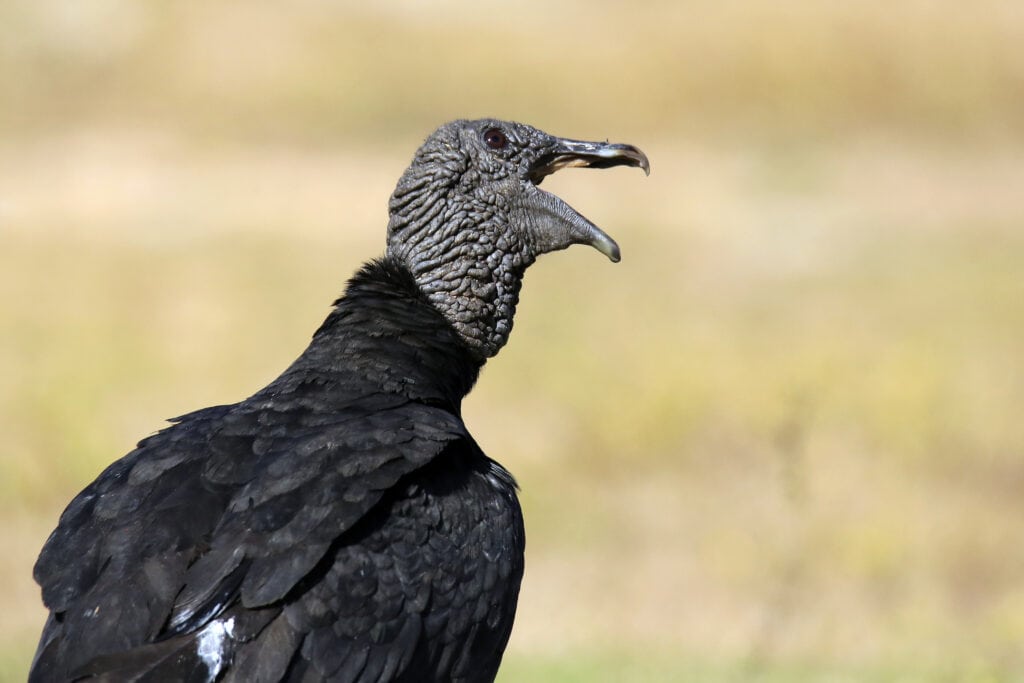The relationship between agriculture and wildlife is long and complex. It spans millennia and encompasses both cooperative relationships and adversarial ones. Birds are quite often at the center of this rocky relationship. The same hawk which is treasured by one farmer for keeping rats and mice out of his fields may be blamed by another for menacing his hens. The natural world is not easily tamed nor does it often offer easy solutions to human problems.
Related Article: Illegal Shooting a More Likely Cause For Bird Deaths Around Power Lines Than Electrocution
In recent years, one particular bird has found itself at the center of many conversations regarding wildlife and agriculture. This is the Black Vulture. Vultures in general tend to be a bit misunderstood. Because they tend to eat dead things, we think of them as omens of death, or as dirty or creepy animals. But vultures serve an important ecological function. Eating dead things cleans our environment and minimizes the spread of diseases. What’s more, many birds which are not judged in the same way as vultures engage in similar scavenging behaviors. Bald Eagles, for example, are known to be scavengers.
But what happens when vultures start targeting live animals? Black Vultures are native species, protected under the Migratory Bird Treaty Act of 1918, but despite this some states are introducing legislature that allows farmers to cull Black Vultures. This is because in recent years many livestock producers have been reporting extensive damage caused by Black Vultures.
Rather than disposing of animal carcasses, large groups of Black Vultures have been alleged to kill small and medium-sized livestock. Goats, ewes, calves, and pigs are all targets for hungry Black Vulture flocks. Some farmers report gruesome scenes where newborn calves are pecked to death before they can even stand.
It’s a disturbing image, but not necessarily an unnatural one. In the animal kingdom, there is no right or wrong when it comes to securing a meal. Of course, there are also those who believe that reports of predatory Black Vultures are exaggerated. Without witnessing the animal’s death, how can anyone be sure if the vultures targeted a dead or dying animal, a perfectly normal behavior for carrion-eating birds, or set upon a live one.
Research into the veracity and frequency of predation by Black Vultures in underway, but several states are moving ahead with exemptions which would allow farmers to cull a set amount of Black Vultures if they pose a threat to their livestock.
Many raptor advocates may be unnerved by such measures. Raptor populations tend to be delicate and in the long run, considering historical culling and the DDT crisis, the agricultural industry has done more harm to raptors than raptors have to it. Still, as Black Vulture populations continue to rise, so too do tensions between these birds and the farmers who support this country’s livestock needs.
Popular Article: Is Brush Management Actually Benefitting the Greater Sage-grouse?

